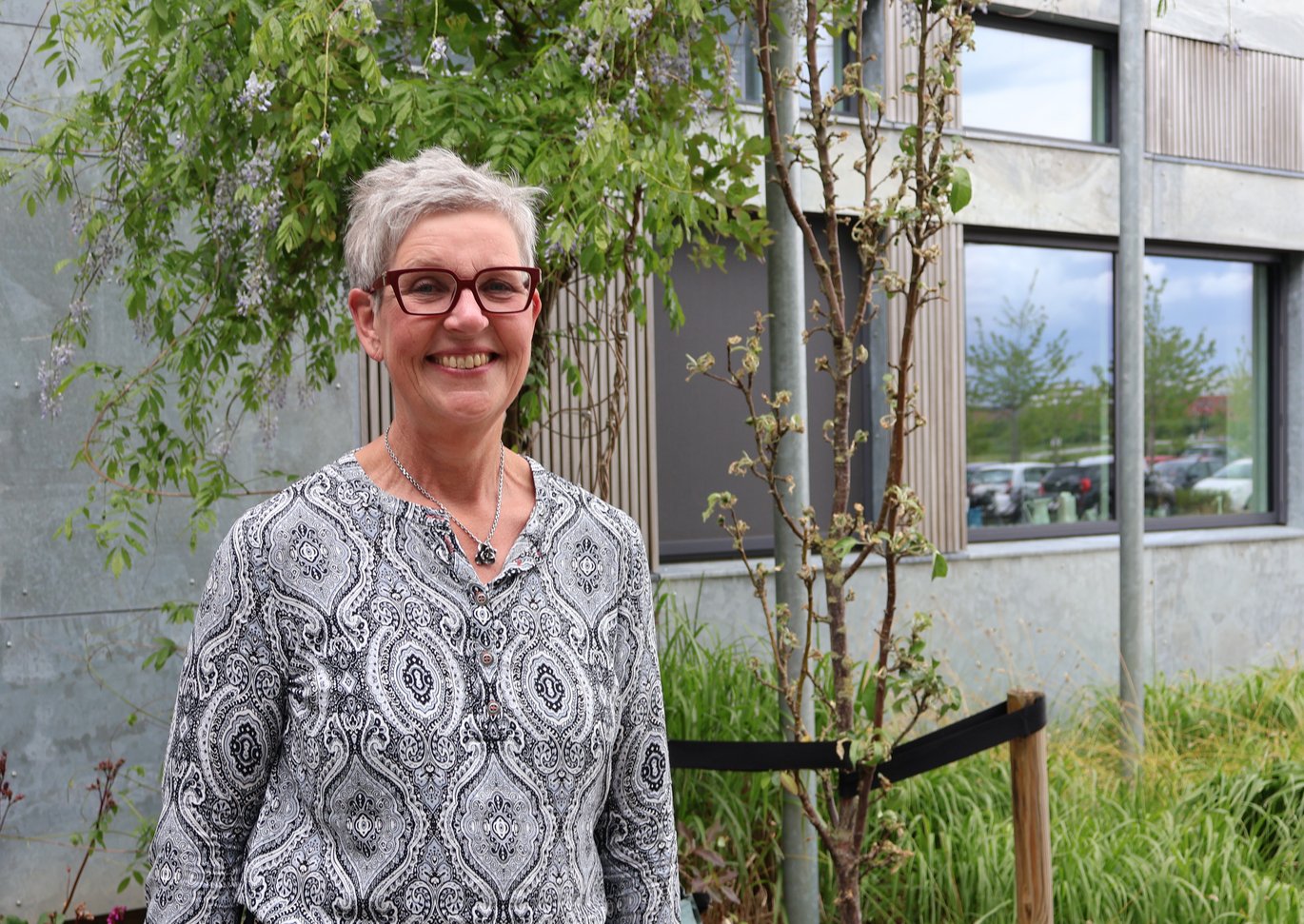Newly Appointed Professor with a Sharp Eye on Our Consumption: "There’s also meat behind the cheese"
Margrethe Therkildsen has been appointed Professor of Meat Science at the Department of Food Science at Aarhus University. She researches how we can produce and consume meat in ways that are sustainable, flavorful, and meaningful — and she doesn’t shy away from challenging oversimplified solutions.

Appointed in February, Margrethe Therkildsen brings nearly three decades of research experience to the position. She has helped shape the field of meat science in Denmark and remains curious, committed, and focused on finding balanced solutions in a complex food landscape.
Her path to professorship was not mapped out from the start. Growing up close to agriculture, she developed a natural interest in livestock production. With a Master’s degree from the Royal Veterinary and Agricultural University and a few years as a cattle consultant, she was eventually drawn into research — and has since remained a dedicated contributor to Danish food science.
“I never had a five-year plan. It’s always been interest and curiosity that have driven me — and then I’ve been lucky to land in exciting projects with great colleagues,” she says.
A Varied Career in Familiar Surroundings
Though her research has taken her in many directions, her workplace has essentially remained the same — even if the name and location have changed over the years.
Her work centers on how we can produce and consume meat more sustainably. “I research sustainable meat production — both conventional and cultivated. It’s about producing high-quality meat in ways that make sense for the climate, for animal welfare, and for consumers,” she explains. “We don’t necessarily need more meat — but better meat. If we can create high-quality products with strong narratives, we might also feel satisfied eating less,” she adds.
She was among the researchers pioneering cultivated meat research in Denmark, even though she was initially skeptical.
A Long Way to the Bioreactor Steak
Part of her cultivated meat research explores how to produce animal protein by cultivating muscle cells in bioreactors — a technology with the potential to transform meat production. Margrethe Therkildsen is especially interested in how existing agricultural resources can be integrated into this process, such as using agricultural by-products as nutrient sources for muscle cells. “I’m very focused on circular production. It’s about using the nutrients we’re already producing in the most efficient and sustainable ways — including in the development of cultivated meat,” she explains.
She’s been surprised by the positive reception she receives when speaking about the topic — from factory directors to representatives from the fishing and meat industries, people are listening with interest, she says.
Putting Circularity in the Driver’s Seat
A core theme of her work is circularity — how we make the best use of resources across the food value chain. This includes by-products from slaughterhouses as well as the synergy between plant and livestock production.
“I get frustrated by solutions that ignore the bigger picture. We need to think in systems — and make room for both plants and animals in future food production,” she says.
For her, sustainability isn’t just about CO₂ accounts, but about understanding the interconnectedness of the food system.
“We need to think holistically. If we want milk, we get meat, too. If we want to use our resources in the best possible way, we need to make space for both plants and animals,” she says.
And there’s one group of consumers that particularly challenges her:
“Many people who choose to eat vegetarian often forget that products like cheese and eggs also come from animals — and that those animals typically become meat. It’s important to consider the entire food chain if you want to make a fully ethical choice,” she emphasizes.
She’s quick to add that she has great respect for vegans who abstain from all animal products for ethical reasons. But she calls for a more nuanced discussion about how we best use the resources we already have.
Teaching and Communication
Beyond research, Margrethe Therkildsen is a passionate educator and science communicator. She’s committed to making complex systems understandable — both for students and for the general public.
She teaches in the first semester of the Agrobiology programme and is course coordinator for the project course "Plants for Food, Feed and Biomass."
The course explores the entire food chain, and she enjoys helping students see how crop production and handling affect whether a plant is best suited for food, feed, or biomass.
“It’s meaningful when I can see that students understand how soil, animals, and food quality are interconnected. That’s when it all makes sense,” she says.
A Climate-Conscious Direction for Danish Livestock
Looking ahead, she hopes to focus more on how Danish livestock production can evolve in a more sustainable direction.
“We have a favorable climate in Denmark for raising livestock — but we need fewer of them,” she stresses.
At the same time, there are synergies that can be tapped, she explains:
“Pigs, in particular, eat just about anything — and could potentially thrive on residual products from the food industry. And I do think it’s perfectly fine to enjoy a pork chop now and then,” she says, firmly adding: “I hope meat will continue to have a place — but it has to be on the right terms. We need to value it and use it with care.”
